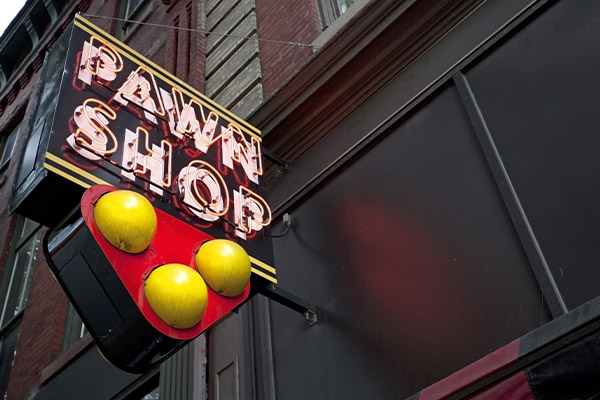
Pawn shops often carry a certain level of misunderstanding regarding their operations and functions. Many people view pawn shops through a lens of misconceptions, unsure of how they work or their true purpose. This article aims to clarify How pawn shops work, address common misconceptions, and provide a clear understanding of their role in the financial ecosystem.
The Basics of Pawn Shop Transactions
The basic operation of pawn shops is frequently misunderstood. When you bring an item to a pawn shop, you essentially use it as collateral for a short-term loan. The pawn shop assesses the item’s value, and based on this appraisal, they offer you a loan amount. This process is straightforward: you receive cash and leave the item with the pawn shop. The loan must be repaid within a specified term, along with interest, to reclaim the item. If you fail to repay, the pawn shop retains the item and can sell it to recover the loan amount. Understanding these basics helps clear up the confusion about how pawn shops provide quick financial solutions.
Misunderstood Pawn Shop Valuation Process
The valuation process at pawn shops is another area often misunderstood. Many people think pawn shops offer loans that are significantly less than the item’s market value, but this is not always the case. Pawn shops base their loan offers on the item’s resale value, which considers factors like condition, demand, and market trends. The pawn shop will typically offer a percentage of this resale value. Misunderstandings about valuation can lead to the assumption that pawn shops undervalue items, whereas they are simply providing loans based on what they could realistically sell the item for.
Interest Rates and Fees: What You Need to Know
Interest rates and fees associated with pawn shop loans are commonly misunderstood. Some believe that pawn shops charge exorbitant rates compared to traditional lenders. While it’s true that pawn shop interest rates can be higher, this is often due to the short-term nature of the loan and the lack of a credit check. Pawn shops take on the risk of providing loans without extensive borrower evaluation, which can contribute to higher rates. Additionally, fees for storage and appraisal might apply. Understanding this context helps clarify why pawn shop loans may have higher costs and allows for a more informed financial decision.
The Loan Repayment Process
The repayment process for pawn shop loans is another aspect that is often misunderstood. Typically, pawn shop loans come with a short-term repayment period, ranging from 30 to 90 days. During this period, you must repay the loan amount plus interest to reclaim your item. If you are unable to repay the loan within the agreed term, the pawn shop keeps the item and may sell it to recoup the loan amount. This system is designed to be flexible, but failure to meet repayment terms can result in losing the pawned item. Clarifying the repayment process helps prevent confusion and ensures you understand your obligations.
Common Misconceptions About Pawn Shops
Several misconceptions about pawn shops contribute to their misunderstood reputation. One common myth is that pawn shops are only for individuals in dire financial situations. In reality, people from various financial backgrounds use pawn shops for different reasons, such as managing temporary cash flow issues or accessing quick funds. Another misconception is that pawn shops only accept items of high value. While high-value items are accepted, pawn shops often deal with a range of goods, from electronics to jewelry. Addressing these misconceptions helps provide a more accurate picture of pawn shop services and their accessibility.
The Role of Pawn Shops in Financial Emergencies
Pawn shops play a significant role in financial emergencies, yet this role is often misunderstood. They offer a quick and relatively simple solution for obtaining cash without undergoing credit checks or lengthy approval processes. This immediacy is crucial for individuals who need urgent funds but may not have access to traditional credit sources. Pawn shops provide a valuable service in bridging short-term financial gaps, especially when other options are unavailable. Understanding this role helps to appreciate the utility of pawn shops in addressing urgent financial needs.
The Ethical Considerations of Using Pawn Shops
Ethical considerations surrounding pawn shops are another area prone to misunderstanding. Some people perceive pawn shops negatively, assuming they exploit financially vulnerable individuals. However, pawn shops are regulated businesses that follow specific legal requirements, including fair appraisal practices and transparent terms. They offer a legitimate financial service, providing access to funds with collateral-backed loans. Recognizing the ethical framework within which pawn shops operate can help shift perspectives and promote a more balanced view of their role in the financial landscape.
Finding a Reputable Pawn Shop
Finding a reputable pawn shop is crucial, yet often misunderstood. Misunderstandings about pawn shop operations can lead to dissatisfaction or poor experiences if proper research is not conducted. To find a trustworthy gold buyers Melbourne, look for establishments with proper licensing, positive customer reviews, and clear, transparent terms. Reputable pawn shops will provide fair appraisals, detailed information about interest rates and fees, and a straightforward loan process. Ensuring that you deal with a reputable pawn shop helps mitigate potential issues and promotes a more positive experience.
Conclusion
Pawn shops offer a valuable financial service, but their operations are frequently misunderstood. By clarifying how pawn shops work, addressing misconceptions about valuation and interest rates, and understanding their role in financial emergencies, you can navigate their services more effectively. Whether you’re seeking quick cash or exploring your options, knowing the true nature of pawn shop transactions helps you make informed decisions and use these services with confidence.
